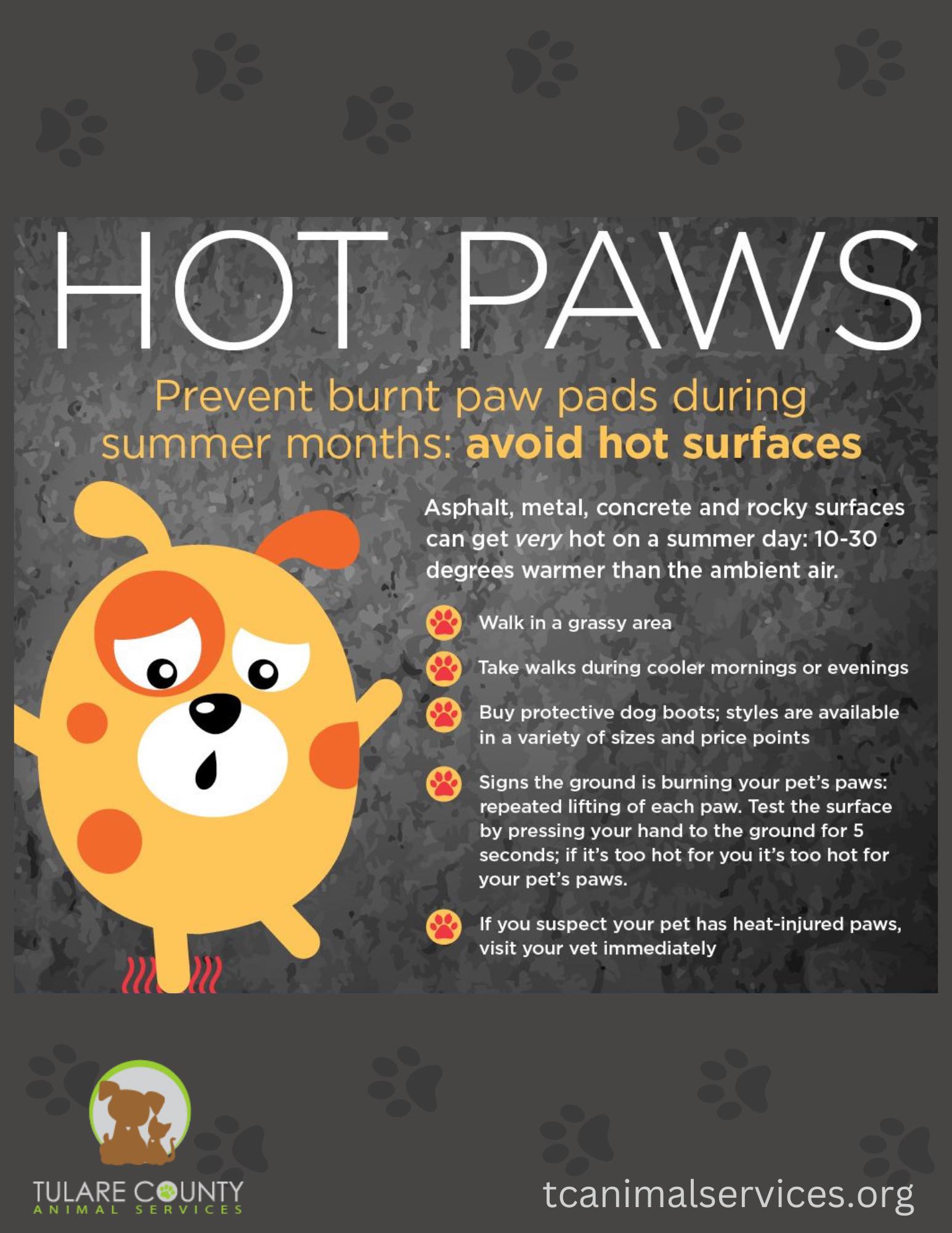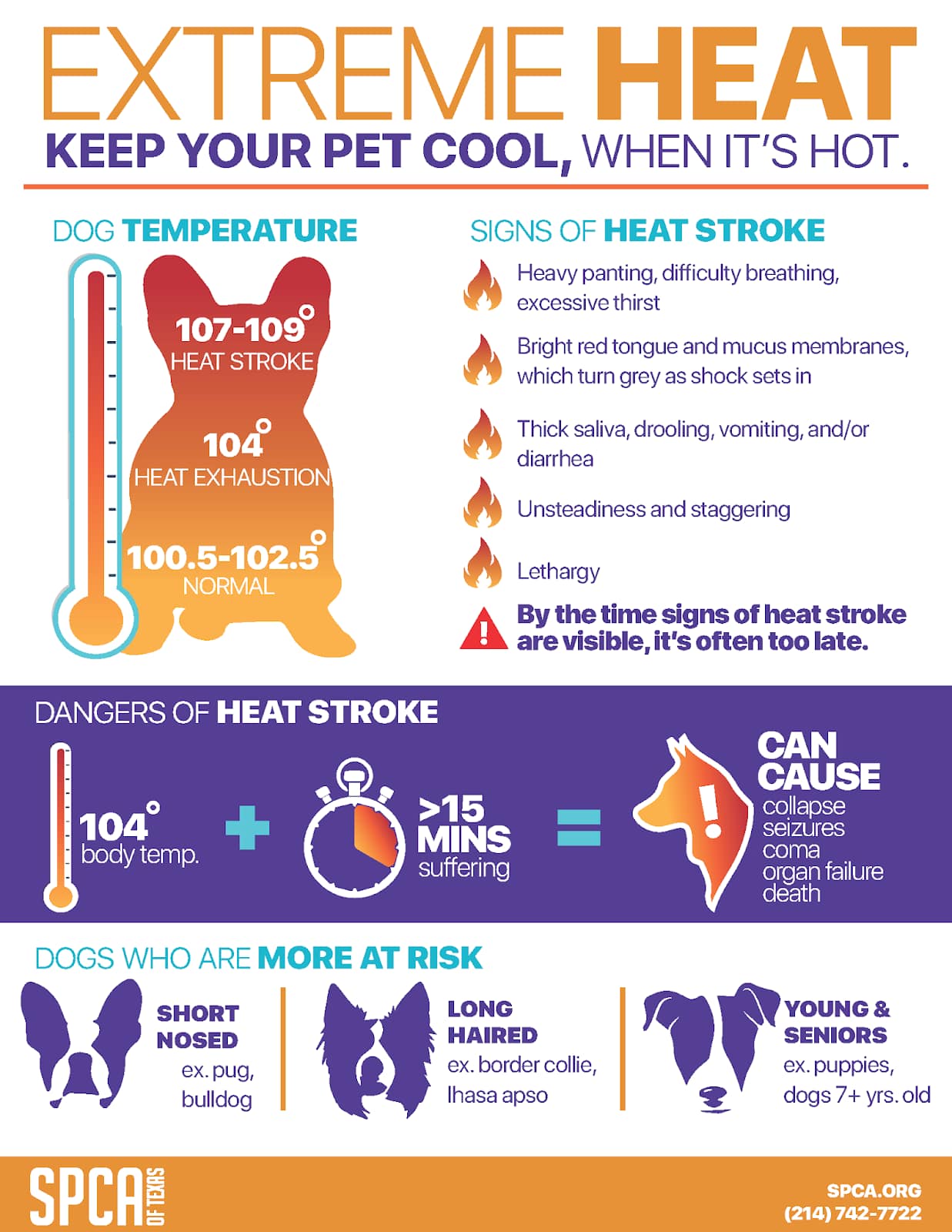Take Special Care of Animals During Extreme Heat
Pets and agricultural animals are at risk of experiencing adverse reactions from the extreme heat we’re going to see in the valley this weekend. Tulare County Health & Human Services’ Animal Services want community members to take special care of animals so they can be healthy and safe.
- Never leave pets in parked cars for any period of time: The temperature in a car can reach 120° in a matter of minutes. If you see an animal in a parked car during the summer, call your local animal control or the police immediately.
- Every animal needs shade and water: Any animal that is outside needs protection from the heat and sun, and plenty of fresh, cool water.
- Know and recognize the signs of heatstroke: Signs of heatstroke include heavy panting, glazed eyes, rapid heartbeat, restlessness, excessive thirst, lethargy, fever, dizziness, lack of coordination, profuse salivation, vomiting, a deep red or purple tongue, and unconsciousness.
- If heatstroke occurs, take action immediately: Take the following steps immediately to gradually lower your pet’s body temperature and contact your veterinarian as soon as possible.
o Move the animal into the shade or an air conditioned area;
o Apply ice packs or cold towels to the head, neck, and chest or run cool water over them;
o Let your pet drink small amounts of cold water or lick ice cubes; and
o Take your animal directly to a veterinarian.
- Limit exercise to early morning or evening hours on very hot days: Remember that both asphalt and cement sidewalks get very hot. These surfaces reach high temperatures, and can burn your pet’s paws.
- Pets with light-colored noses or light-colored fur on their ears are particularly vulnerable to sunburn and skin cancer, and may require sunscreen on nose and ear tips.
An animal's normal temperatures are from 99 to 102.2. As a result, they may more quickly reach fatal temperatures of 105 to 106. An animal should never be tied up where it cannot access shade and water; the water should be kept shaded. We also have seen pets with e-collars that suffer heat stroke because the collar traps heat around the head. Dogs only have sweat glands on their paws, so most of their cooling efforts are achieved via panting; don’t rely on a fan to cool down pets. All animals should be checked frequently as should their water sources. Some animals tip over their water bowls and can become dehydrated quickly.
These safety tips are not a substitute for veterinary care. If a heat-related illness occurs, contact your veterinarian immediately.
For more information about summer heat safety, visit these websites:
ASPCA – https://www.aspca.org/pet-care/general-pet-care/hot-weather-safety-tips
The Human Society – https://www.humanesociety.org/resources/keep-pets-safe-heat
American Veterinary Medical Association – https://www.avma.org/resources/pet-owners/petcare/warm-weather-pet-safety





